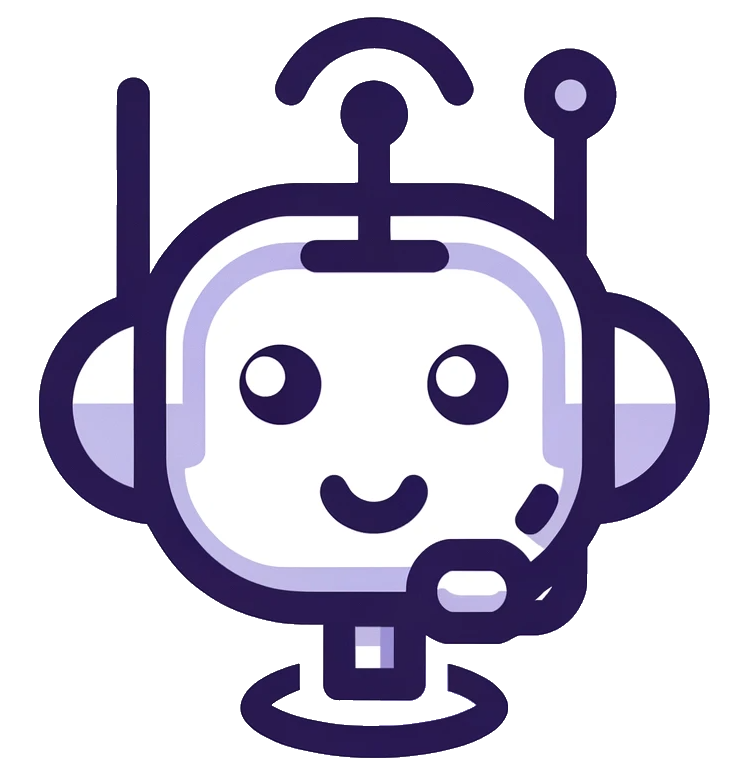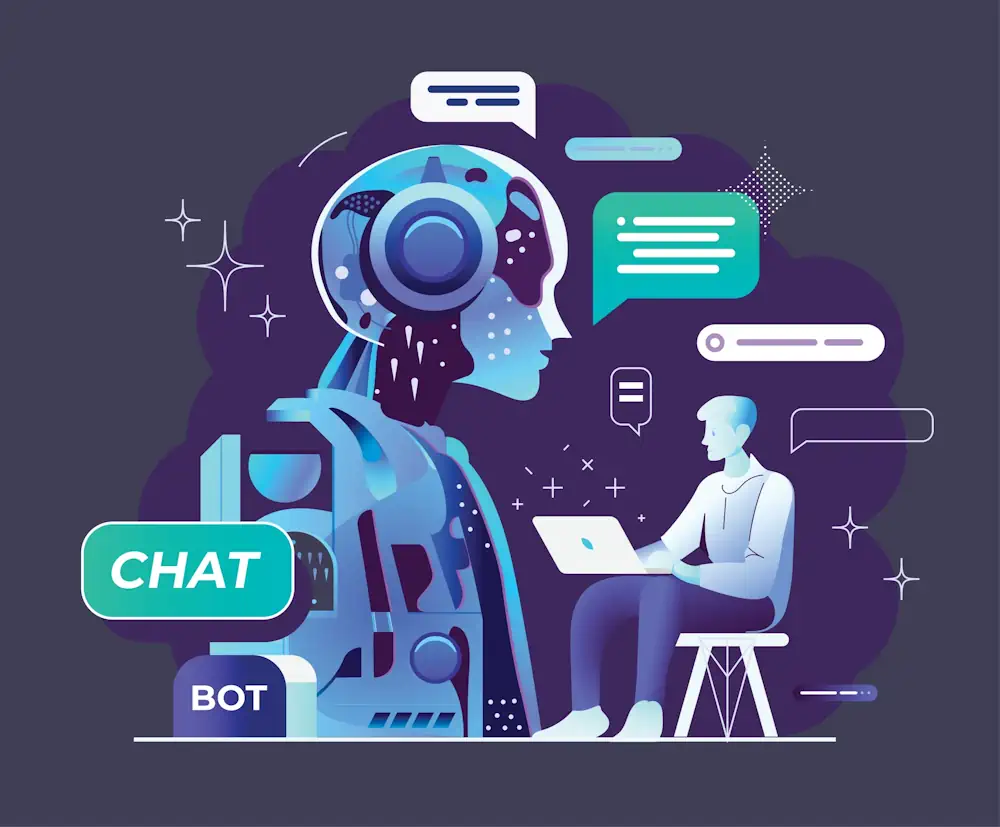Innovative, data-driven, customer-centric, scalable …
An Artificial Intelligence (AI) chatbot embodies a sophisticated virtual communication interface that leverages machine learning and natural language processing (NLP) to facilitate complex, dynamic interactions with users. Unlike its rule-based counterparts, an AI chatbot possesses the capability to comprehend and generate responses to user inquiries through the recognition and analysis of patterns within its training data, thus enabling a versatile, adaptable conversational experience across myriad contexts.
AI chatbots draw upon extensive knowledge bases and utilize probabilistic models to discern user intent and generate pertinent, coherent responses. The inherent capacity for understanding contextual nuances and managing unstructured dialogues allows AI chatbots to engage in conversations that are not strictly confined to predefined pathways, thereby delivering a more organic, user-friendly interaction experience.
Characteristics of AI Chatbots
- Contextual Understanding: The ability to discern user intent and comprehend contextual and linguistic nuances, providing relevant and context-aware responses.
- Dynamic Interaction: The capability to manage unstructured dialogues and adapt to varied conversational scenarios, thereby facilitating fluid, natural conversations.
- Learning Capability: The potential to continuously refine and enhance its understanding and response generation through ongoing interaction and feedback, ensuring perpetual evolution and improvement.
- Versatility: The ability to engage across a wide spectrum of conversational topics and scenarios, providing support and information in a diverse array of contexts.
- Personalization: The capacity to tailor interactions based on user behavior, preferences, and historical data, thereby delivering a customized user experience.
AI chatbots offer an advanced solution for businesses and organizations that seek to elevate their customer interaction experience, providing a platform that is capable of understanding and responding to a broad array of inquiries and dialogues. While the technology may pose challenges in terms of specificity and consistency compared to rule-based models, the adaptive, user-centric communication facilitated by AI chatbots stands as a powerful tool in enhancing user engagement and satisfaction across digital platforms.
Advantages of AI-Chatbots for Businesses
AI chatbots offer the ability to manage diverse and nuanced knowledge-based conversations across numerous contexts, providing adaptable, scalable, and often more human-like interactions compared to rule-based counterparts.
- Adaptive Learning: AI chatbots can learn and adapt to various conversational contexts and user behaviors over time, offering improved interactions.
- Handling Complex Conversations: Their ability to manage and engage in more complex, varied, and evolving dialogues is typically superior to rule-based bots.
- Natural Language Understanding: They can comprehend and respond to natural language inputs, facilitating more human-like conversations.
- Scalability: AI chatbots can handle large volumes of queries simultaneously, ensuring scalable customer service.
- 24/7 Availability: They can provide continuous service and support to users around the clock.
- Multilingual Support: Many AI chatbots can converse in multiple languages, broadening their applicability across diverse user bases.
- User Experience: They can enhance user experience by providing more intuitive and engaging interactions.
- Automation of Repetitive Tasks: They effectively automate numerous routine and repetitive customer service tasks, saving human resources for more complex issues.
- Data Collection: AI chatbots can accumulate and analyze user data to provide insights into customer behavior and preferences.
- Integration Capabilities: They can be integrated with various digital platforms and applications to provide cohesive and comprehensive services.
- Cost-Effective: In the long run, they can be more cost-effective by reducing the workload on human agents and optimizing customer service operations.
- Personalization: AI chatbots can offer personalized experiences by utilizing user data to tailor interactions and recommendations.
- Proactive Customer Interaction: They can initiate interactions with users, offering assistance and recommendations proactively, which can enhance customer engagement and satisfaction.
Disadvantages of AI Chatbots
AI chatbots can exhibit limitations in understanding highly specific or complex user requests, ensuring consistent reliability, managing sensitive interactions, and sometimes they may generate responses that are inappropriate or nonsensical, all while requiring substantial data and computational resources for optimal functionality.
- Limited Understanding: Struggle with complex or ambiguous requests.
- Inconsistency: May provide inaccurate or varied responses.
- Sensitive Handling: Challenges in managing emotional interactions.
- Resource Intensive: Require substantial data and computational power.
- Data Privacy: Potential issues with handling and compliance.
- Bias: Can exhibit biases from training data.
- Data Dependency: Responses limited by training data quality.
- Security Concerns: Need secure management of data and interactions.
- Lack of Empathy: Cannot genuinely comprehend emotions.
- Non-Textual Input Issues: Struggle with non-text inputs unless designed for it.
- Complex Implementation: Can be complicated and costly to deploy.
- Legal/Ethical Issues: Ensuring compliance can be complex.
Image: CkyBe / Shutterstock.com

